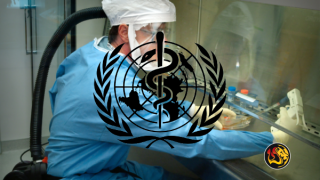
by Worthy News Washington D.C. Bureau Staff
(Worthy News) – The Trump administration announced Friday that the United States is formally rejecting a series of controversial amendments to the World Health Organization’s (WHO) International Health Regulations (IHR), saying the changes would grant sweeping new powers to the UN health body and undermine American sovereignty.
The decision, jointly announced by Secretary of Health and Human Services Robert F. Kennedy Jr. and Secretary of State Marco Rubio, comes just one day before the July 19 deadline to lodge official reservations against the amendments, which were approved by WHO member states in 2024–including, at the time, the United States.
“Nations who accept the new regulations are signing over their power in health emergencies to an unelected international organization that could order lockdowns, travel restrictions, or any other measures it sees fit,” Kennedy said in a video statement. “In fact, it doesn’t even need to declare an emergency.”
The revised IHR introduced a new designation–“pandemic emergency”–that could trigger a series of WHO-led responses, including digital health requirements and travel protocols. The WHO has described the amendments as a way to “strengthen global preparedness, surveillance, and responses to public health emergencies.”
But U.S. officials warn the changes cross a red line.
“These amendments risk unwarranted interference with our national sovereign right to make health policy,” Kennedy and Rubio wrote in a joint statement. “We will put Americans first in all our actions, and we will not tolerate international policies that infringe on Americans’ speech, privacy, or personal liberties.”
The United States had already begun the process of withdrawing from the WHO earlier this year following President Donald Trump’s executive order, issued on January 20–his first day back in office. However, administration officials said the U.S. was still technically bound by the 2024 language unless it took formal steps to reject it before the deadline.
The decision was immediately praised by conservative lawmakers and civil liberties advocates.
“The United States must never cede our sovereignty to any international entity or organization,” said Rep. Chip Roy (R-Texas). “I applaud Secretary Kennedy and Secretary Rubio for rejecting the World Health Organization’s ill-advised amendments.”
Sen. Ron Johnson (R-Wis.) added, “The WHO used COVID as an excuse to undermine our freedoms. I fully support the administration’s decision to reject this power grab.”
Not all shared the administration’s view. Lawrence Gostin, Director of the WHO Collaborating Center on National and Global Health Law, criticized the move on social media platform X, calling the IHR “a vital framework that facilitates rapid detection and response, promotes accurate info, and protects civil liberties.”
The IHR, first adopted in 2005, was designed to coordinate international responses to disease outbreaks. In 2022, WHO member states agreed to begin reviewing the IHR in light of what they called gaps exposed during the COVID-19 pandemic. The 2024 amendments–initially adopted at the World Health Assembly in Geneva–included language prioritizing “solidarity and equity” and proposed the creation of a panel to assess the needs of developing countries in future emergencies.
Secretary Kennedy, a longtime critic of vaccine mandates and pandemic-era restrictions, said the amendments would open the door to “narrative management, propaganda, and censorship.”
“The United States can cooperate with other nations without undermining our Constitution or ceding away America’s treasured sovereignty,” he said.
While the WHO has not responded to requests for comment, it previously indicated that countries not filing formal objections by the deadline would be considered legally bound by the new rules.
The Trump administration’s rejection also distances the U.S. from an ongoing global effort to finalize a broader “pandemic treaty” currently under negotiation at the WHO. American representatives have not participated in the final stages of those talks since the U.S. withdrawal from the organization.
Officials say the administration remains committed to protecting Americans from future health threats–but on its own terms.
“We will always defend the Constitution and the freedom of the American people,” Rubio stated. “That means saying no to international overreach–no matter how it’s disguised.”
Copyright 1999-2026 Worthy News. This article was originally published on Worthy News and was reproduced with permission.
Latest News from Worthy News
A Christian pastor detained in Nicaragua since July 2025 has been released from prison but placed under house arrest along with five other Christian believers, Worthy News established on Thursday.
An injured Christian pastor in eastern India says recalling Bible verses gave him strength to survive hours of brutal abuse by a Hindu mob that accused him of converting Hindus to Christianity.
U.S. forces carried out five sets of precision strikes against Islamic State targets across Syria between Jan. 27 and Feb. 2, the U.S. military’s U.S. Central Command announced Wednesday.
U.S. forces carried out five sets of precision strikes against Islamic State targets across Syria between Jan. 27 and Feb. 2, the U.S. military’s U.S. Central Command announced Wednesday.
U.S. Special Envoy Steve Witkoff announced on Feb. 5 that Ukraine and Russia have agreed to exchange 314 prisoners, marking the first such swap in five months and the most tangible outcome yet from U.S.-brokered talks held in Abu Dhabi. The exchange followed multiple days of trilateral negotiations involving delegations from Washington, Kyiv, and Moscow.
The Supreme Court of the United States on Wednesday declined to take up a legal challenge to California’s newly drawn congressional map, allowing the state to proceed with district lines that effectively eliminate five Republican-held U.S. House seats.
President Donald Trump said Thursday that Iran has entered negotiations with the United States because it fears potential military action, as both sides prepare for high-stakes talks expected to take place in Oman. Speaking at the National Prayer Breakfast in Washington, Trump said Tehran “doesn’t want us to hit them,” adding that a U.S. naval fleet is in the region as pressure increases.






